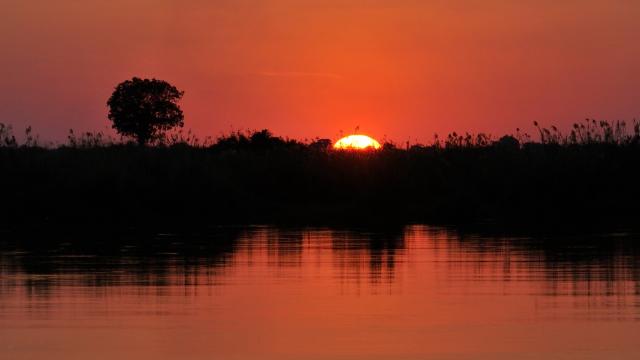
Trophy hunting and conservation
It’s hard to understand why anyone would want a dead animal as a trophy. It understandably provokes upset and heartbreak for many of us who love wildlife – we don’t want to see any wild animal killed in this way.
WWF works to prevent any hunting that threatens the survival of a species.
The rate of global temperature rises reminds us we need to focus on the issues that are going to have the biggest impact in saving our planet’s precious animals and places. That is why we focus on and care deeply about tackling the biggest threats to wildlife and their habitats across the world, for example fighting deforestation and working to prevent climate change.
We know unsustainable and illegal hunting are driving some species to the brink of extinction and we fight to protect them and their habitats. We have acted to help protect landscapes and tackle threats such as poaching, and the results are clear. For example, tiger populations have doubled in India in just over a decade.
We know that hunting a complex issue, so this article explores the answers to common questions about trophy hunting.
Frequently asked questions
What is trophy hunting?
While trophy hunting is often used interchangeably with canned hunting or poaching, they describe different things.
- Trophy hunting is a form of hunting in which the hunter’s explicit goal is to obtain the hunted animal’s carcass or body part as a trophy, carried out legally in line with the laws of the country in question.
- Canned hunting is the shooting of animals purposefully bred and kept in confined enclosures where they are unable to escape.
- Poaching is the illegal hunting of wildlife and is a significant threat to many species across the globe. Stopping the illegal wildlife trade is one of the most important and urgent parts of WWF UK’s work to protect threatened wildlife.
Where hunting or trade is unsustainable, we have campaigned for it to be banned or stopped – including for species such as leopards, African grey parrots, pangolins, or the commercial trade in elephant ivory and rhino horn.
Why does trophy hunting happen?
In some places, local communities and Indigenous people rely on trophy hunting for their livelihoods. It can provide a critical income so they can feed their families, have access to healthcare, clean water and sanitation, and education. This in turn provides an incentive for them to protect habitats and species, and to tolerate dangerous wildlife.
The reality of life for the people living alongside wildlife is very different to what we experience here in the UK. They are co-existing with wildlife that could (and does) kill people, their livestock, damage their property or destroy their livelihoods.
Therefore, if trophy hunting is stopped, there must be a replacement source of income and an alternative that provides incentives to live alongside wildlife. The same goes for a UK ban on trophy hunting imports; there must be an assured, sustainable replacement for the critical income local communities and Indigenous peoples lose as a direct result of the ban.
A long-term, sustainable solution would mean that local communities and Indigenous people have viable and acceptable alternatives.
Does trophy hunting help local and indigenous communities?
The extent to which trophy hunting operations provides direct benefits to local communities is varied. Evidence shows that there are trophy hunting programmes that provide financial and other benefits, such as a valued source of wildmeat, to local communities and indigenous peoples.
However sadly there are cases elsewhere that the benefits from hunting concessions aren’t always passed on to local communities by operators. In several countries there is evidence of potential positive impacts for communities being undermined by weak governance, corruption, lack of transparency and lack of benefit sharing.
Although these issues are not limited to the management of trophy hunting, it’s only right that trophy hunting operations claiming significant community benefits can demonstrate these and be held accountable if not.
Does WWF support trophy hunting?
We don’t want to see any wild animal killed in this way, and WWF works to prevent any hunting that threatens the survival of a species.
WWF has no role in regulating or setting the rules and regulations around hunting of species – that is the responsibility of relevant national, regional or local bodies. We recognise that conservation must respect the rights of national governments and Indigenous peoples over their land. WWF works with governments, communities and indigenous peoples around the world to advocate for wildlife and nature.
Is trophy hunting driving species to extinction?
WWF's Living Planet Report sets out that nature is in freefall with a catastrophic decline of 73% of average wildlife populations since 1970. The report shows that the main threats to wildlife are the conversion of land for agriculture and climate change. Habitat loss and rapid changes in the climate are driving the loss of most wild species.
Over-exploitation does also register as a significant risk to some species – primarily through overfishing and illegal hunting. Legal Trophy Hunting, distressing as it is, does not register as a risk because the number of animals affected is relatively small.
We hope that this page has helped provide the information needed to understand how trophy hunting is not a clear-cut issue - and that understanding an issue is complex is not the same as supporting it.
Many vulnerable communities around the world live alongside some of our most threatened species and we need to secure a world in which people and nature can thrive together. We at WWF-UK will keep fighting for that world.
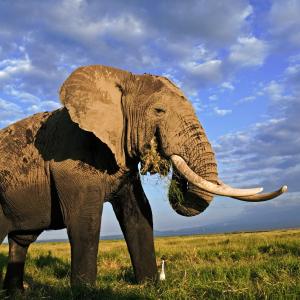 Land for life: providing support in Kenya and Tanzania
Land for life: providing support in Kenya and Tanzania
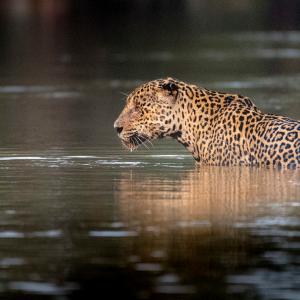 Fascinating facts about animals
Fascinating facts about animals
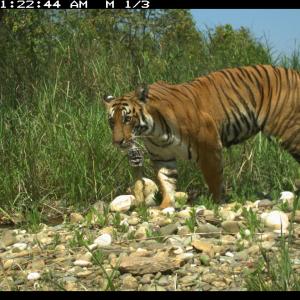 Tigers roar back in Nepal
Tigers roar back in Nepal
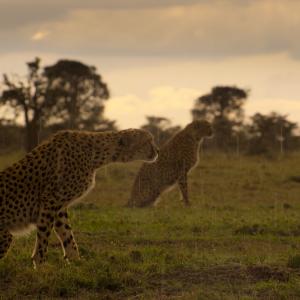 Our reports in the knowledge hub
Our reports in the knowledge hub